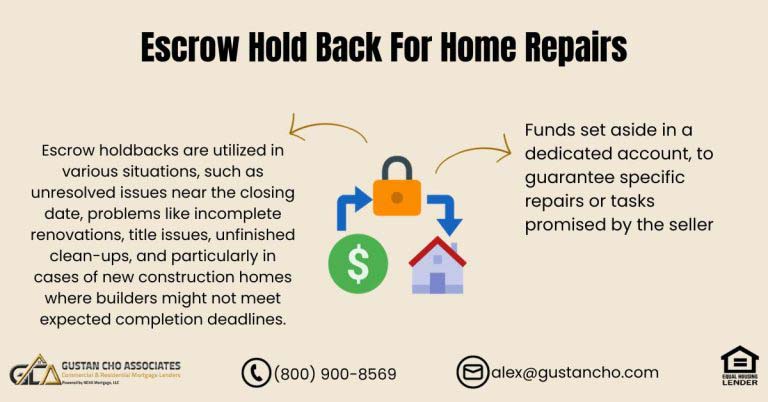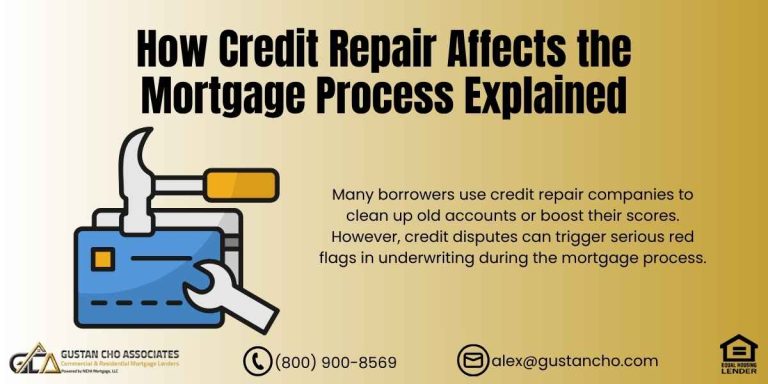If you’re considering buying a house and need a loan, getting the lowdown on the main types of loans is super important. Let’s talk about the difference between conventional loans versus FHA loans. People in the United States consider these two main options when they need money to buy a home.
Each type of loan has its pros and cons, the sorts of houses you can buy with it, and rules about how much money you need to put down or what your interest rate might look like.
This guide walks you through everything from how to qualify, how much cash you’ll need upfront, the interest you’ll pay, and extra costs like mortgage insurance. Plus, we’ll look into how much you can borrow and what properties are on the table. Weighing the advantages and downsides will make it much clearer whether conventional and FHA loans fit better with what you’re looking for and your plans for owning a home. By the time you finish this overview, you’ll feel more prepared to decide on the loan that aligns with your home-buying goals.
Understanding Conventional Loans Versus FHA Loans
When discussing the difference between conventional loans versus FHA loans, it’s important to delve into what sets them apart.
Conventional loans, which are not backed by the government, are typically seen as conforming loans. This means they must meet the guidelines Fannie Mae and Freddie Mac set out. You typically need a FICO credit score of 620 or higher to qualify these kind of loan.
On the flip side, when we talk about conventional loans versus FHA loans, the latter stand out because they are insured by the Federal Housing Administration, better known as FHA. FHA loans are attractive because they are more accessible to a wider range of borrowers.
This is due to their more relaxed credit score requirements and the option to make a smaller down payment. Specifically, if you’re aiming for an FHA loan and can make a 3.5% down payment, you’ll need a credit score of at least 580 FICO. However, there’s still hope for those with credit scores ranging from 500 to 579. While they can qualify for an FHA loan, they’d need to make a higher down payment – around 10%.
Confused About FHA and Conventional Loans? We Can Help You Choose!
Reach out today to get expert guidance on which loan type is right for you, and let’s get you on the path to homeownership!Eligibility Requirements
If you’re considering buying a house and are trying to figure out the best way to finance it, you might be looking into conventional loans versus FHA loans. Understanding what you need to qualify for either option is super important.
Credit Score
When it comes to your credit score, which is how lenders figure out if you’re good at paying back the money you borrow, the requirements differ a bit between the two. Lenders typically want a FICO score of at least 620 for a conventional loan. If you can pay 3.5% of the home’s price with an FHA loan, your credit score can be as low as 580. However, if your score is between 500 and 579, you need to pay 10% to qualify.
Income and Employment
Income and job history matter, too. Both types of loans, conventional loans versus FHA loans, want to see that you have a steady income and a solid track record of employment. However, conventional loans might be a bit pickier, often asking for you to earn more than FHA loans require.
So, in breaking down conventional loans versus FHA loans, it’s clear each has its own set of rules for who can borrow money. Going through these requirements helps you figure out which loan might be your best path to owning a home.
Conventional Loans Versus FHA Loans
The amount you need to put down upfront can significantly affect your decision between conventional loans versus FHA loans.
Downpayment Requirements
- Conventional Loans: The usual down payment amount is around 5%. However, some programs may accept as little as 3% for first-time homebuyers.
- FHA Loans: If your credit score is 580 or above, you must make a down payment of at least 3.5%. If your score falls between 500 and 579, a 10% down payment is necessary.
Interest rates
Interest rates play a big role when deciding between conventional loans versus FHA loans. Here’s the thing: interest rates aren’t about one number. They can change based on a lot of stuff, like how much money you’re putting down or your credit score.
- FHA Loans: First, let’s talk about FHA loans, which are like a safety net because they’re backed by the government. This makes banks feel more relaxed, and as a result, they might offer you a break on interest rates. FHA loans look pretty sweet if your credit score isn’t high and you’re not throwing a big downpayment.
- Conventional Loans: On the flip side, we’ve got conventional loans. If you compare conventional loans to FHA loans, you’ll find that conventional loans may have higher interest rates. However, if you have a good credit score and can make a decent down payment, banks might offer you competitive rates that make conventional loans just as appealing as a cold lemonade on a hot day
To sum it up, when wrestling with the choice of conventional loans versus FHA loans, remember that while FHA loans often come with friendlier interest rates, especially for those who aren’t flashing stellar credit scores. What it boils down to is your financial situation. Your credit score, downpayment, and other money matters will play a big role in deciding which loan suits you best.
Mortgage Insurance
Mortgage insurance is essential to consider when comparing conventional loans versus FHA loans.
- Conventional Loans: If you put down less than 20% when buying a home, you must have Private Mortgage Insurance (PMI). You can stop paying PMI once you have 20% equity in your home.
- FHA Loans: FHA Loans require UFMIP (Upfront Mortgage Insurance Premium) and MIP (Annual Mortgage Insurance Premium). Unlike conventional loans, MIP is required for the life of the loan if your down payment is less than 10%. If your down payment is 10% or more, MIP is required for 11 years.
Loan Limits
Understanding how much money you can borrow is key when you’re looking at the difference between conventional loans versus FHA loans. Let’s keep it simple.
When it comes to conventional loans versus FHA loans, here’s what you need to know:
- Conventional Loans: For conventional loans, usually, you can borrow up to $726,200 in most places in 2024. But, if you’re buying a house in an area where things cost more, you can borrow even more than that.
- FHA Loans: FHA loans are different. The maximum you can borrow varies depending on where you live, but it is usually $472,030 for a single-family home.
So, when comparing the two, remember these numbers to see which best suits your needs.
Property Types
The types of properties you can finance differ between conventional loans versus FHA loans.
- Conventional Loans: It can be used for primary residences, second homes, and investment properties.
- FHA Loans: They are primarily for primary residences. They cannot be used for second homes or investment properties.
Conventional or FHA Loan? Let’s Explore Which Option Is Best for You!
Reach out now to learn more about both options and see which one fits your homeownership goals.Pros and Cons
When you’re stuck choosing between conventional loans versus FHA loans, it’s smart to look at the good and bad points.
Conventional Loans
Why you might pick conventional loans:
- You can buy different kinds of homes.
- No need to pay extra insurance if you put down 20%.
- You can borrow more money if the house is in an expensive area.
But, conventional loans can be tough because:
- You need good credit and a stable job.
- If your credit is not great, you need a bigger down payment.
FHA Loans
Why FHA loans are worth a look:
- It’s easier to get approved with a lower credit score.
- You don’t need a lot of money upfront.
- They’re more forgiving about how much debt you have.
However, FHA loans have their downsides too:
- If you don’t put down 10%, you’re stuck with mortgage insurance forever.
- You can only use them to buy your main home.
- Sometimes, you can borrow less than with conventional loans.
So, when weighing the pros and cons of conventional loans versus FHA loans, consider what best fits your situation.
Cost Analysis
Comparing the costs of conventional loans versus FHA loans can help you decide which one is best for you.
Conventional Loans:
- Closing Costs: Typically 2-5% of the loan amount.
- Monthly Payments: Include principal, interest, taxes, insurance, and possibly PMI if less than 20% down.
- Long-Term Costs: Can be lower if PMI is canceled when equity reaches 20%.
FHA Loans:
- Closing Costs: Include UFMIP (1.75% of the loan amount) and other typical fees (2-5% of the loan amount).
- Monthly Payments: Include principal, interest, taxes, insurance, and MIP.
- Long-Term Costs: MIP can be higher because it lasts for the life of the loan if less than 10% down.
Special Considerations
Certain situations may make one loan type more suitable than the other when comparing conventional loans versus FHA loans.
High Student Loan Balances:
- FHA loans require 1% of the outstanding student loan balance to be included in the debt-to-income ratio. This can make qualifying harder if you have a high student loan balance.
- With conventional loans, you can choose income-based repayment plans to lower the impact of student loans on your debt-to-income ratio.
Non-Borrowing Spouse:
- In community property states, FHA loans include the debts of a non-borrowing spouse in the debt-to-income ratio calculations. This does not apply to conventional loans.
Non-Occupant Co-Borrowers:
- FHA loans require non-occupant co-borrowers to be related by blood, marriage, or law. Conventional loans do not have this requirement.
Prior Mortgage Included in Bankruptcy:
- Conventional loans have a four-year waiting period from the discharge date of the bankruptcy. FHA loans have a three-year waiting period from the recorded foreclosure date or deed-in-lieu foreclosure.
Deciding between conventional and FHA loans is more complicated because it depends on your financial situation. This includes things like how good your credit is, how much cash you’ve got for a down payment, how much you earn, and the type of house you’re aiming to buy.
To figure out what’s best for you, talking to a mortgage pro is a smart move. They can walk you through your options and help you pick the best loan that suits your situation. Whether you choose conventional loans versus FHA loans, the main thing is getting a loan that gets you into a home while keeping your finances in good shape.
For advice tailored just for you, reaching out to Gustan Cho Associates could help. They’re all about making the mortgage process simpler and helping you find the loan that’s right for you.
FAQs: Conventional Loans Versus FHA Loans: Which One is Best?
-
1. What is the main difference between conventional loans and FHA loans? Conventional loans require higher credit scores, while FHA loans have more flexible credit score requirements because they are insured by the Federal Housing Administration.
-
2. What credit score do I need to qualify for a conventional loan versus an FHA loan? To get a regular loan, you typically need a credit score of at least 620. For an FHA loan, you can qualify with a credit score as low as 580 if you can make a 3.5% down payment. You’ll need a 10% downpayment if your credit score is between 500 and 579.
-
3. How much do I need to put down for a conventional loan versus an FHA loan? For conventional loans, you typically need to put down at least 5%, though some programs allow as little as 3% for first-time homebuyers. A down payment of 3.5% is needed for FHA loans when your credit score is 580 or above, and a 10% down payment is required if your score falls between 500 and 579.
-
4. How do interest rates compare between conventional loans and FHA loans? FHA loans usually have lower interest rates than conventional loans, especially for borrowers with lower credit scores. However, both loan types’ actual rates are influenced by your credit score and down payment.
-
5. What is mortgage insurance, and how does it differ between conventional loans and FHA loans? For conventional loans, if you put down less than 20%, you need Private Mortgage Insurance (PMI). If you have an FHA loan and put down less than 10%, you will need to pay an initial mortgage insurance premium (UFMIP) and yearly mortgage insurance premiums (MIP) throughout the duration of the loan.
-
6. What are the loan limits for conventional loans versus FHA loans? In most areas, the loan limit for conventional loans is $726,200 in 2024, but this can be higher in high-cost areas. FHA loan limits vary by county but generally max out at $472,030 for a single-family home in most areas.
-
7. Can I use conventional loans or FHA loans to buy a second home or investment property? You can use conventional loans for primary residences, second homes, and investment properties. However, FHA loans are mainly for primary residences and cannot be used for second homes or investment properties.
-
8. What are the pros and cons of conventional loans versus FHA loans? Conventional loans offer flexibility, no mortgage insurance with 20% down, higher loan limits. FHA loans need lower credit scores, smaller down payments, but require mortgage insurance for the life of the loan if down payment is less than 10%.
-
9. How do high student loan balances affect my ability to qualify for conventional loans versus FHA loans? FHA loans require 1% of the outstanding student loan balance to be included in the debt-to-income ratio, which can make qualifying harder if you have high student loan debt. Conventional loans allow for income-based repayment plans, which can lower the impact of student loans on your debt-to-income ratio.
-
10. What special considerations should I keep in mind when choosing between conventional loans versus FHA loans? Consider factors like the impact of a non-borrowing spouse’s debts in community property states, the ability to use non-occupant co-borrowers who are not related, and waiting periods after a bankruptcy or foreclosure. These factors can influence whether conventional loans or FHA loans are the better option for your specific situation.
By understanding the differences between conventional loans versus FHA loans, you can make an informed decision that aligns with your home-buying goals and financial situation. For personalized advice, contact Gustan Cho Associates at 800-900-8569 to help guide you through the mortgage process and find the best loan for your needs.
This blog about Conventional Loans Versus FHA Loans: Which One is Best was updated on July 22nd, 2024.










